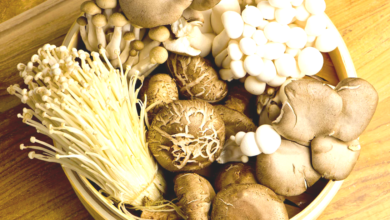Effective Diet Strategies for Hormonal Imbalance

Hormonal imbalances can wreak havoc on your body, affecting everything from your mood to your metabolism. While there are various treatments available, diet plays a crucial role in managing and improving hormonal health. By understanding how what you eat influences your hormone levels, you can make informed choices that help restore balance and promote overall well-being.
Diet Strategies for Hormonal Imbalance
Hormonal imbalance occurs when there is too much or too little of a hormone in the bloodstream. Because of their essential role in the body, even small hormonal imbalances can cause side effects throughout the body. Common symptoms include fatigue, weight gain, mood swings, and irregular periods. Causes range from stress and poor diet to medical conditions such as polycystic ovary syndrome (PCOS) and thyroid disorders.
The Role of Diet in Hormonal Health
Diet significantly impacts hormone production and regulation. Nutrient-rich foods can support hormone production and help maintain hormonal balance, while poor dietary choices can lead to or exacerbate imbalances. Consuming a balanced diet with the right mix of macronutrients and micronutrients is essential for hormonal health.
Read More : 9 Health Benefits of Citrus Fruits
Essential Nutrients for Hormonal Balance
Macronutrients
Carbohydrates
Carbohydrates are a primary energy source. However, the type of carbohydrates you consume matters. Focus on complex carbohydrates such as whole grains, vegetables, and legumes, which provide a steady release of energy and help maintain stable blood sugar levels.
Proteins
Proteins are crucial for hormone production. They provide the building blocks (amino acids) necessary for the synthesis of various hormones. Include lean meats, fish, eggs, and plant-based proteins like beans and lentils in your diet.
Fats
Healthy fats are vital for hormone production and balance. They help in the synthesis of steroid hormones like estrogen and testosterone. Include sources of healthy fats such as avocados, nuts, seeds, and olive oil.
Micronutrients
Vitamins
Vitamins play a significant role in maintaining hormonal health. Vitamin D, for instance, is crucial for the production and regulation of hormones. B vitamins are essential for energy production and hormonal balance. Ensure you get a variety of vitamins through fruits, vegetables, and fortified foods.
Minerals
Minerals like magnesium, zinc, and selenium are vital for hormone production and function. Magnesium helps regulate cortisol, the stress hormone, while zinc is crucial for reproductive health. Include nuts, seeds, leafy greens, and seafood in your diet.
Foods to Include in Your Diet
Healthy Fats
Healthy fats, such as those found in avocados, nuts, seeds, and olive oil, are essential for the production of hormones. They provide the raw materials for hormone synthesis and help reduce inflammation, which can negatively impact hormonal balance.
High-Fiber Foods
Fiber helps regulate insulin levels, which can have a cascading effect on other hormones. High-fiber foods include fruits, vegetables, whole grains, and legumes. These foods also aid in detoxification, helping the body eliminate excess hormones.
Protein-Rich Foods
Protein is necessary for the production of hormones and enzymes. Include a variety of protein sources in your diet, such as lean meats, fish, eggs, beans, and lentils. This variety ensures you get all the essential amino acids needed for hormone synthesis.
Anti-Inflammatory Foods
Chronic inflammation can disrupt hormonal balance. Anti-inflammatory foods such as berries, fatty fish, green tea, and turmeric can help reduce inflammation and support overall hormonal health.
Foods to Avoid
Refined Sugars
Refined sugars can cause spikes and crashes in blood sugar levels, leading to insulin resistance and hormonal imbalances. Avoid sugary snacks, beverages, and desserts to maintain stable blood sugar levels.
Processed Foods
Processed foods often contain unhealthy fats, sugars, and additives that can disrupt hormonal balance. Focus on whole, unprocessed foods to support hormonal health.
Trans Fats
Trans fats, found in many fried and processed foods, can negatively impact hormone levels and increase inflammation. Avoid foods containing trans fats to promote hormonal balance.
Special Diet Plans for Hormonal Balance
Mediterranean Diet
The Mediterranean diet is rich in fruits, vegetables, whole grains, healthy fats, and lean proteins. It’s known for its anti-inflammatory properties and is beneficial for hormonal health. This diet emphasizes whole, unprocessed foods and healthy fats from sources like olive oil and fish.
Plant-Based Diet
A plant-based diet focuses on foods derived from plants, including vegetables, fruits, nuts, seeds, oils, whole grains, legumes, and beans. This diet can help reduce inflammation and improve insulin sensitivity, promoting hormonal balance.
Low-Glycemic Diet
A low-glycemic diet includes foods that have a low impact on blood sugar levels. It helps maintain stable insulin levels, which is crucial for hormonal health. Foods like whole grains, legumes, and non-starchy vegetables are key components of this diet.
Meal Planning Tips
Creating a balanced meal plan is essential for maintaining hormonal health. Include a variety of nutrient-dense foods and ensure you get a good mix of proteins, fats, and carbohydrates. Here are some tips:
- Plan your meals ahead of time to avoid unhealthy choices.
- Include a variety of colorful fruits and vegetables in your diet.
- Incorporate lean proteins and healthy fats into each meal.
- Stay hydrated by drinking plenty of water.
Lifestyle Changes to Support Hormonal Health
Regular Exercise
Exercise helps regulate hormones and reduces stress. Aim for at least 30 minutes of moderate exercise most days of the week. Activities like walking, cycling, and yoga can be particularly beneficial.
Stress Management
Chronic stress can lead to hormonal imbalances. Incorporate stress-reducing techniques such as meditation, deep breathing exercises, and hobbies you enjoy.
Adequate Sleep
Sleep is crucial for hormonal health. Aim for 7-9 hours of quality sleep each night. Poor sleep can disrupt the production of hormones, including cortisol and insulin.
Read More : The 5 Best Probiotic Foods for Gut Health
Conclusion
Diet plays a vital role in managing hormonal imbalances. By incorporating nutrient-dense foods and making informed dietary choices, you can support your hormonal health and overall well-being. Remember, it’s not just about what you eat but also how you live. Combine a balanced diet with regular exercise, stress management, and adequate sleep to promote hormonal balance.
FAQs
- What is the best diet for hormonal imbalance?
The best diet for hormonal imbalance is one that is balanced and rich in whole, unprocessed foods. Diets like the Mediterranean, plant-based, and low-glycemic diets are particularly beneficial.
- Can exercise help balance hormones?
Yes, regular exercise helps regulate hormones, reduce stress, and improve overall health, which can contribute to hormonal balance.
- How long does it take to see changes in hormonal health after changing diet?
It varies from person to person, but generally, you may start noticing improvements in hormonal health within a few weeks to a few months of dietary changes.
- Are supplements necessary for hormonal balance?
While a balanced diet is the best way to get necessary nutrients, supplements can be helpful if you have specific deficiencies. Always consult with a healthcare provider before starting any supplements.
- Can hormonal imbalance be completely cured with diet alone?
Diet plays a crucial role in managing hormonal imbalance, but it may not be a complete cure for everyone. A comprehensive approach, including medical treatment and lifestyle changes, is often necessary.











